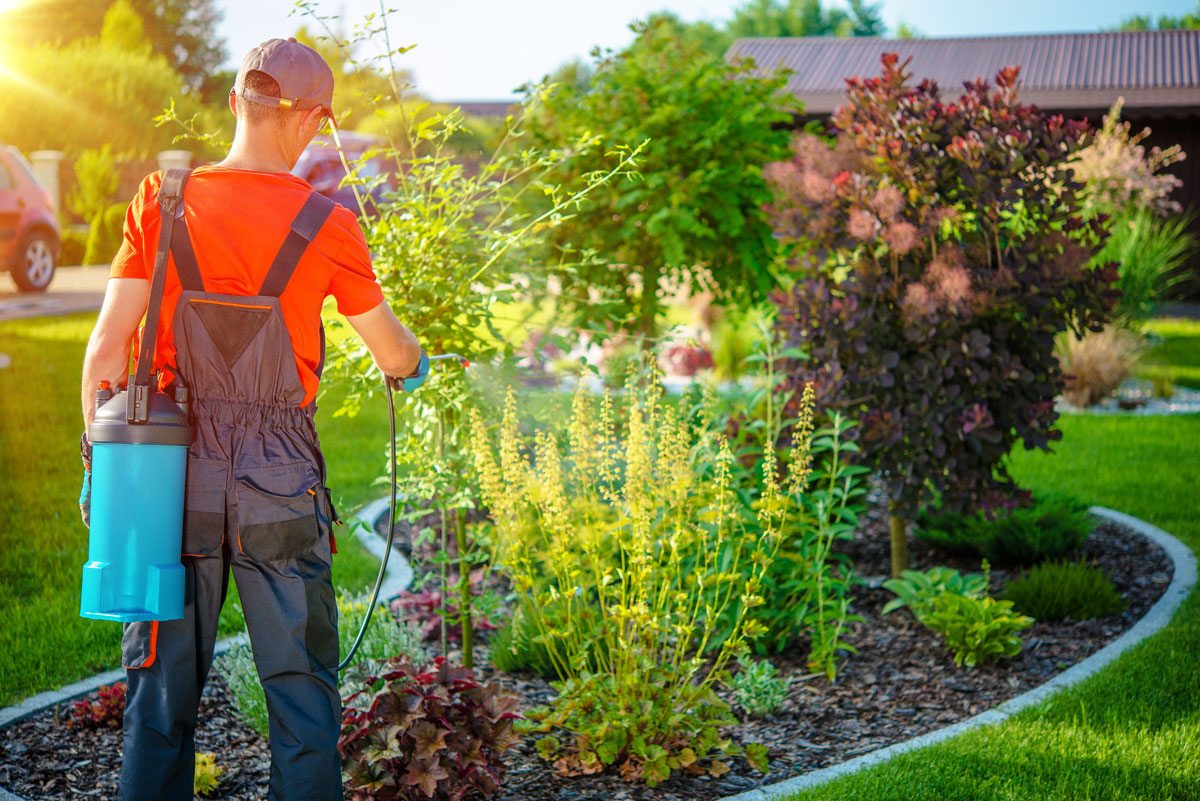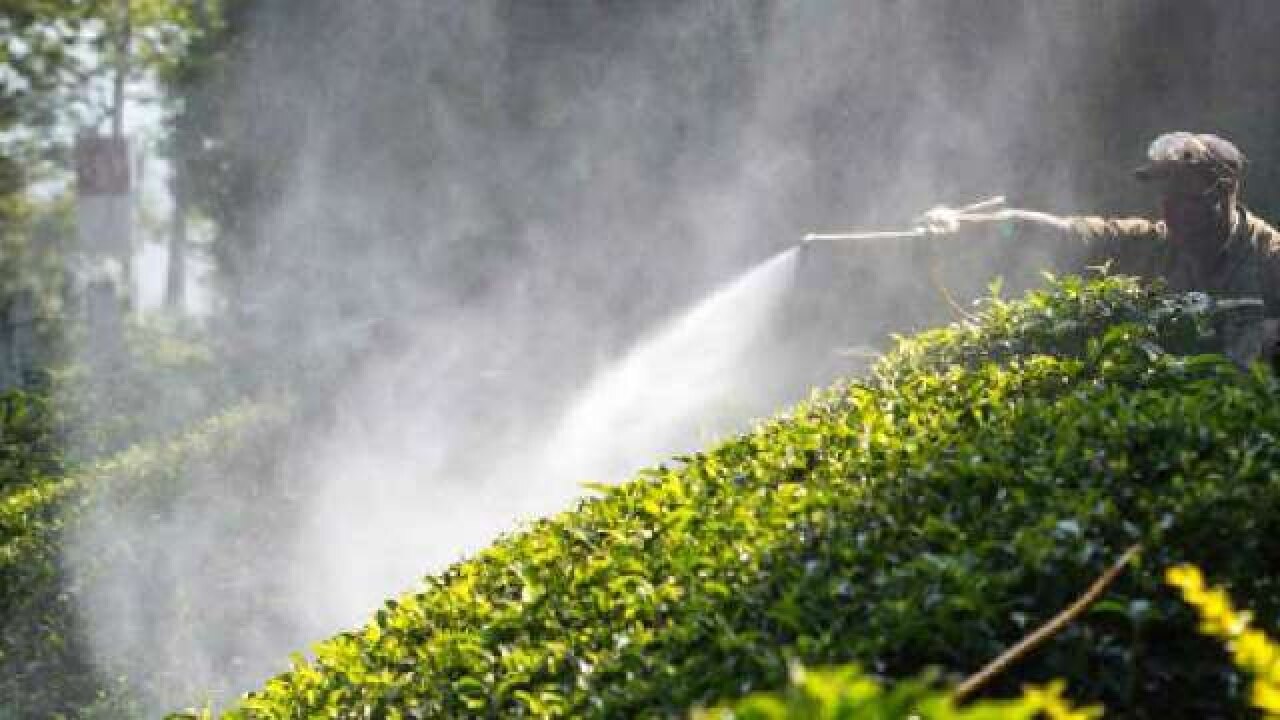Natural Pest Elimination: Seven Strategies To Keeping Insects Under Control Without The Need For Dangerous Chemicals
Natural Pest Elimination: Seven Strategies To Keeping Insects Under Control Without The Need For Dangerous Chemicals
Blog Article
The content following next relating to Control Household Pests Without Scary Poisons is rather fascinating. Read on and draw your own personal assumptions.

No property owner wants to share space with a pest. Massive pest infestations usually relate to the usage of poisonous chemicals. Right here are seven guaranteed methods to manage insects so you don't have to resort to poisonous chemicals.
Usage Do It Yourself Pesticides
You can Do it yourself pesticides with no chemicals. Consider making self-made concoctions to maintain insects away.
Dispose of Food Scraps Appropriately
The primary factor bugs like your house are all the food! Dispose of food scraps in paper bags and placed them in a sealed rubber container. Make sure that crumbs are vacuumed, and also countertops are cleaned down.
Seal Off Entry Information
If you want parasites to stay out, secure off all possible entrance points. You can utilize a caulking weapon to patch up any kind of problematic areas. You can use weather strips to make certain your home is extremely sealed.
Guarantee Good Air Circulation
Significantly, some pests like dirt termites love humid and also damp environments. If you desire them gone, permit fresh air and also sunlight to circulate via your home.
Establish a Regular Cleaning Set Up
Insects normally get into areas that are not clean. If you desire to make sure your home is pest-free, stick to a routine cleaning schedule.
Attempt an Ultrasonic Plug
Keep them near entry factors to ward off frustrating bugs. These ingenious gadgets send out audio waves that only pest ears can listen to.
Look For Eco-Friendly Pest Control
If you have done every little thing feasible, yet pests still involve your residential property, you should call a trusted pest control company. If you desire safe and also ecologically sound remedies, you need to try to find a company with "environment-friendly" certifications. This suggests they utilize natural pesticides to eradicate pest invasions to assure the security of your family, items, as well as pet dogs.
No property owner desires to share area with a pest. Massive pest problems usually correspond to the usage of harmful chemicals. Below are seven proven ways to manage parasites so you don't have to resort to hazardous chemicals.
If you want bugs to remain out, seal off all possible access factors. If you have actually done whatever possible, but pests still come to your property, you must call a reputable pest control firm.
Effective pest control without the harmful chemicals
If you have grown plants for food or aesthetics, you have probably experienced the frustration of losing some of your crops to insects and other pests. That is just a part of gardening, although if you grow crops year-round, you’ve probably realized that the upside of winter gardening is that you don’t have to spend much time fighting herbivores, since the cold weather kills them or drives them into a dormant stage. Animals are a different story, however, and you may find that hungry squirrels, deer, raccoons, or other critters are helping themselves to your plants even through the cold season.
To get rid of insect herbivores, many gardeners resort to using insecticide-pesticides. (Pesticides consist of a number of substances, including weed killers like RoundUp, insect-killing chemicals, and molluscucides, or “snail bait.”) In fact, most commercial (and many non-commercial) plants are grown with the aid of pesticides. While this may seem like a solution to the problem of insect herbivores ruining all your hard work, it has many downsides that have implications for your plants’ health, the health of the environment, and your own as well.
What effects do pesticides have on plants, the environment, and human health?
Regular use of pesticide undermines plant health because insects develop greater resistance to those pesticides, which means that you have to use more pesticide. That increased usage can stunt the plant’s growth, interfering with photosynthesis and killing of beneficial microorganisms in the soil that help the plant to complete the chemical processes involved in delivering nutrients to its roots and leaves. Pesticides also contaminate the soil, water, and air harming wildlife and other, non-target plant species.
Are organic pesticides better?
Some people believe that using organic (i.e. plant- and mineral-based) pesticides is better for human and environmental health than synthetic pesticides. This is a common misconception, and one that the organic food industry is not too eager to correct. In fact, while most people believe that using pesticides that are approved for organic farming are less harmful than using synthetic pesticides, there is not much evidence to support this. However, the main reason for the lack of evidence is that there just haven’t been enough studies done to show the effects of regularly using organic pesticides on the health of plants and animals, the environment, and humans.
The studies that have emerged in recent years suggest some disturbing facts: one such study,[i] published in the journal PloS One in 2010, noted that the natural pesticides 1) mineral oil and 2) beauveria bassiana (a fungus), both USDA-approved for organic farming, were not only less effective in controlling soybean aphids than their synthetic counterparts, they killed off beneficial insects that kept the aphid populations down and thus had a negative environmental impact. Other natural pesticides, including insecticidal soap, pyrethrins, sabadilla, diatomaceous earth, horticultural oil, spinosad, and copper sulfate (a fungicide), are all toxic to bees. Rotenone, also approved for organic farming, is toxic to fish. Bacillus thuringiensis (Bt), a soil-dwelling bacterium and the most widely used pesticide in organic farming, is harmful to butterflies, moths, flies, and beetles.
https://www.greenandprosperous.com/blog/effective-pest-control-without-the-harmful-c

Do you like more info about Control Household Pests Without Scary Poisons? Post a remark further down. We would be glad to find out your responses about this post. We are looking forward that you come back again soon. Don't hesitate to take a moment to promote this blog entry if you liked it. Thanks so much for your time spent reading it.
View Report this page